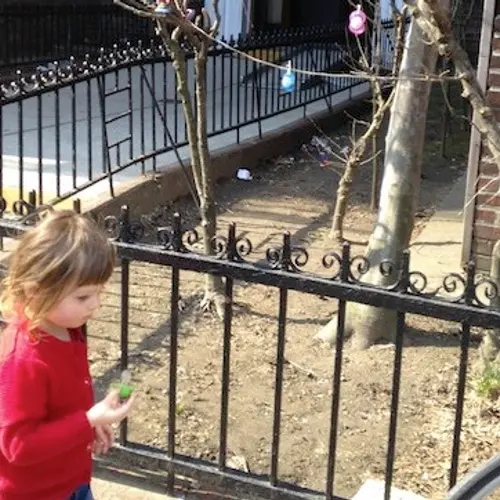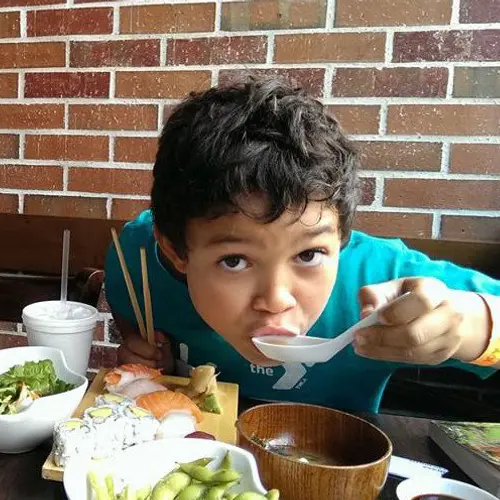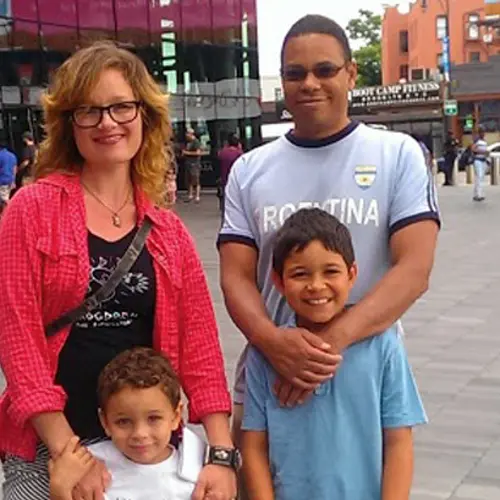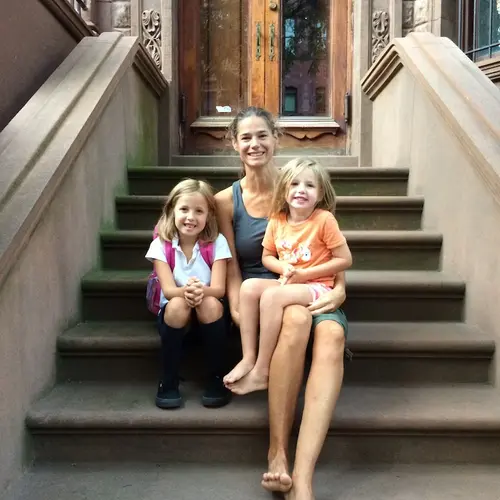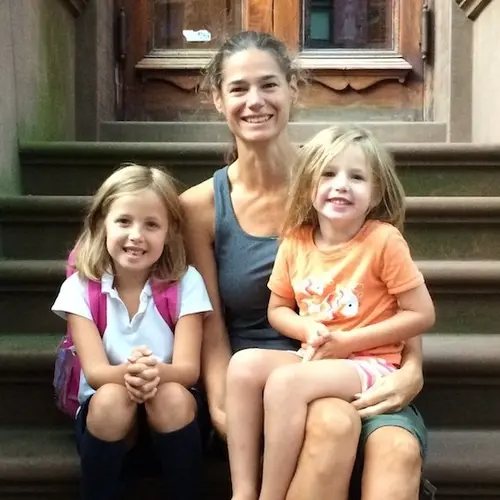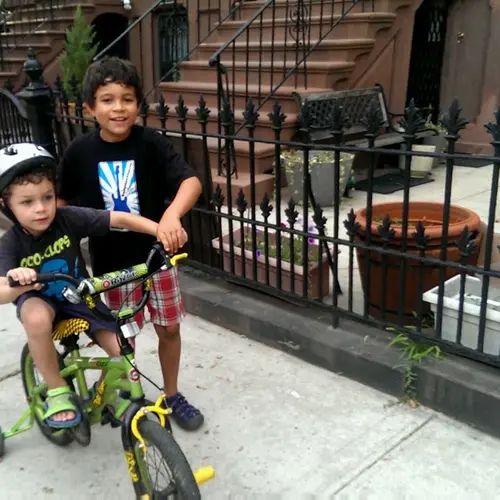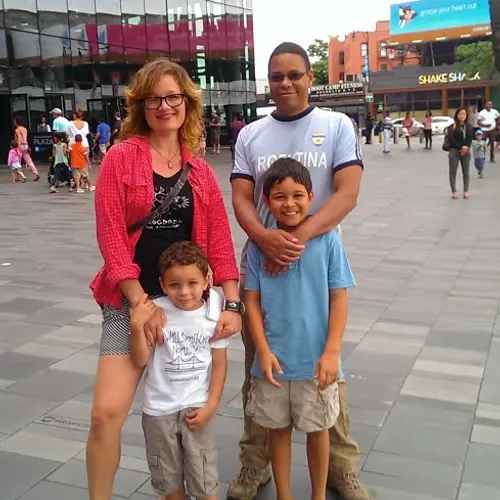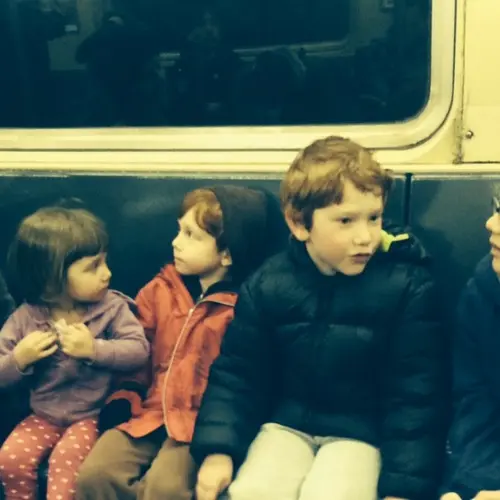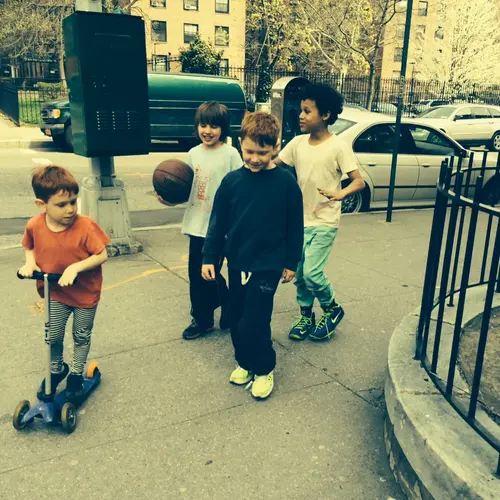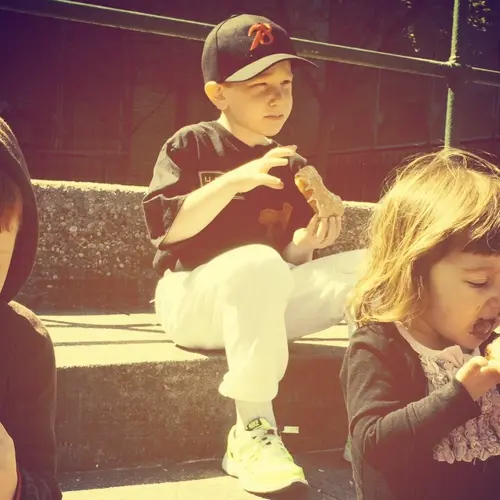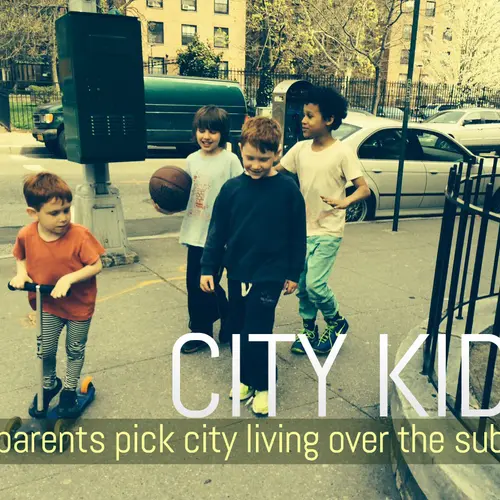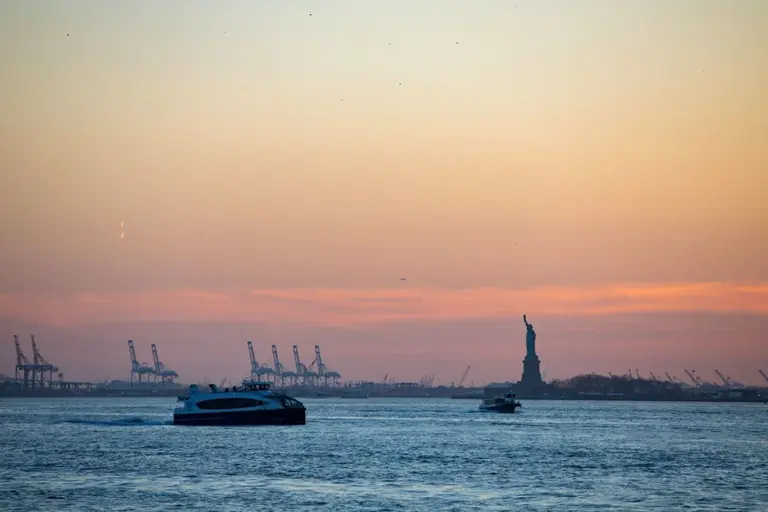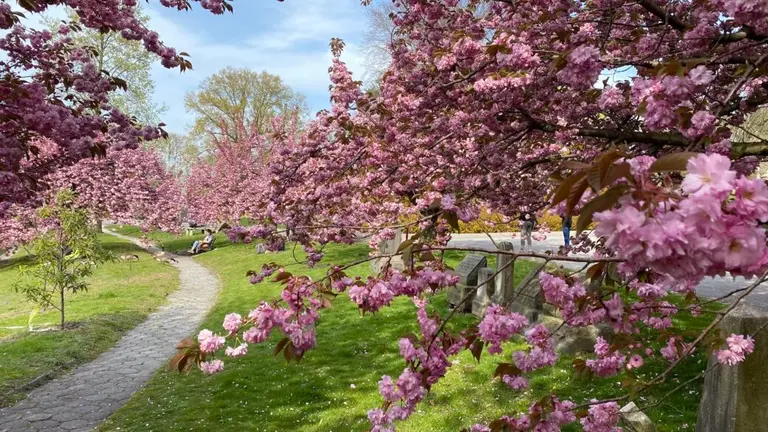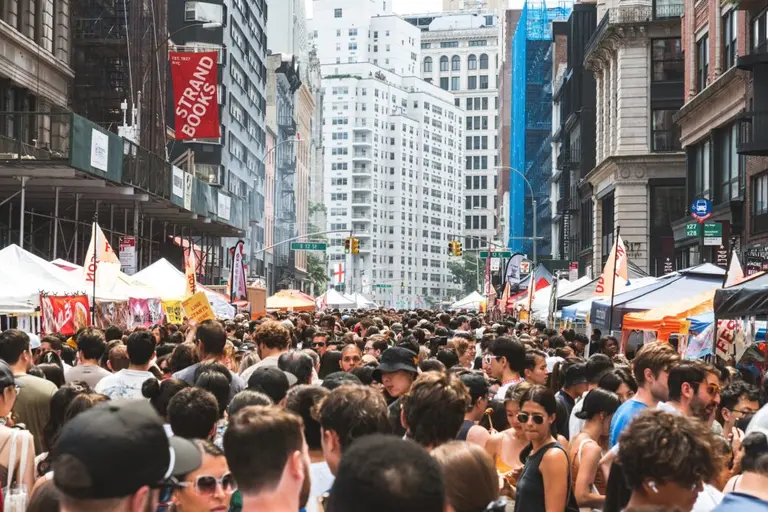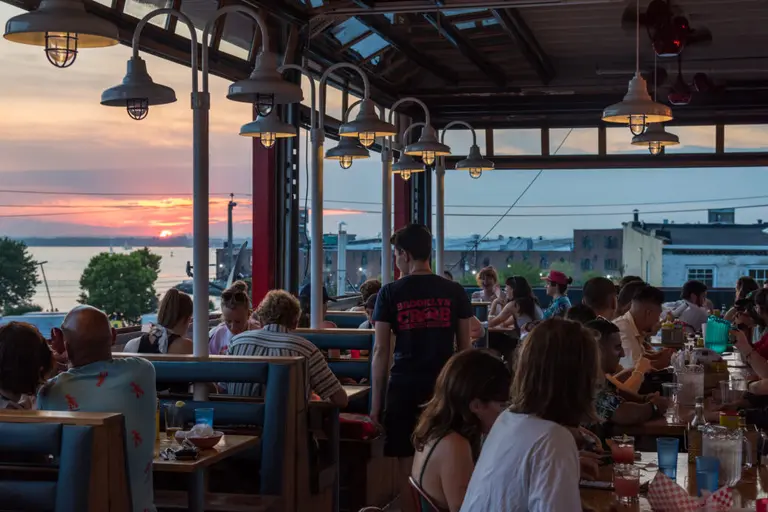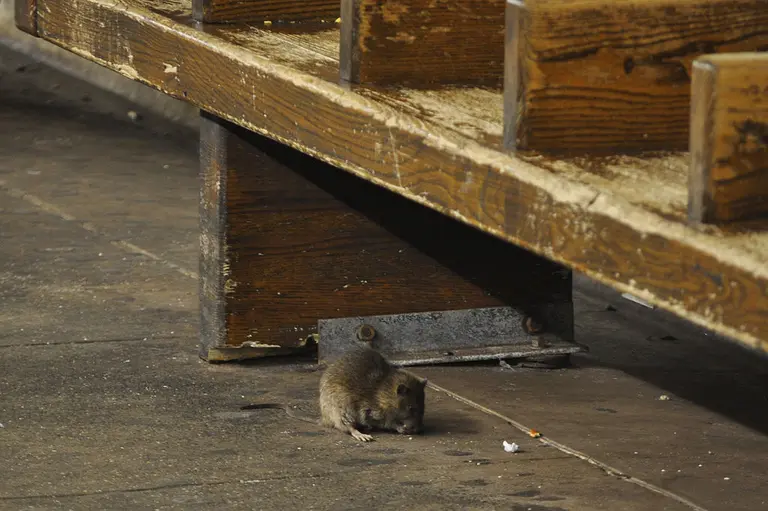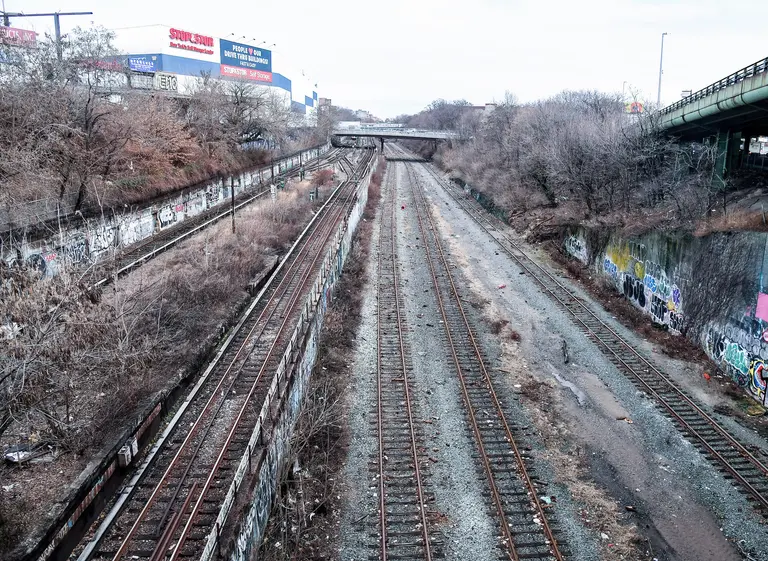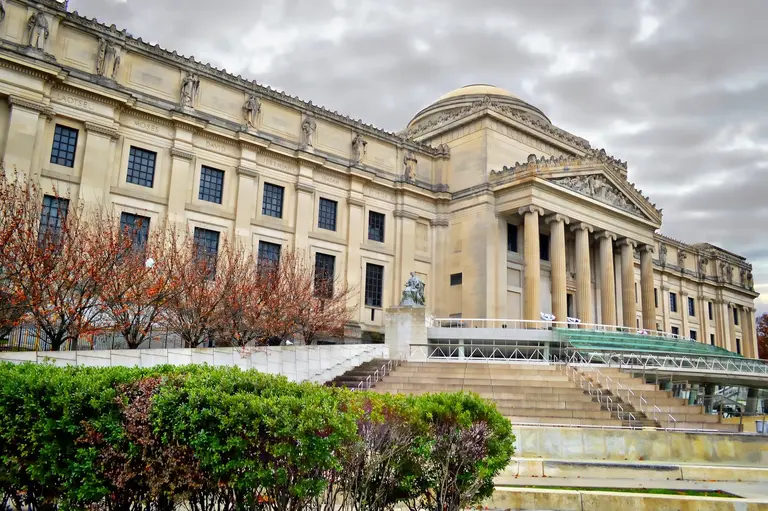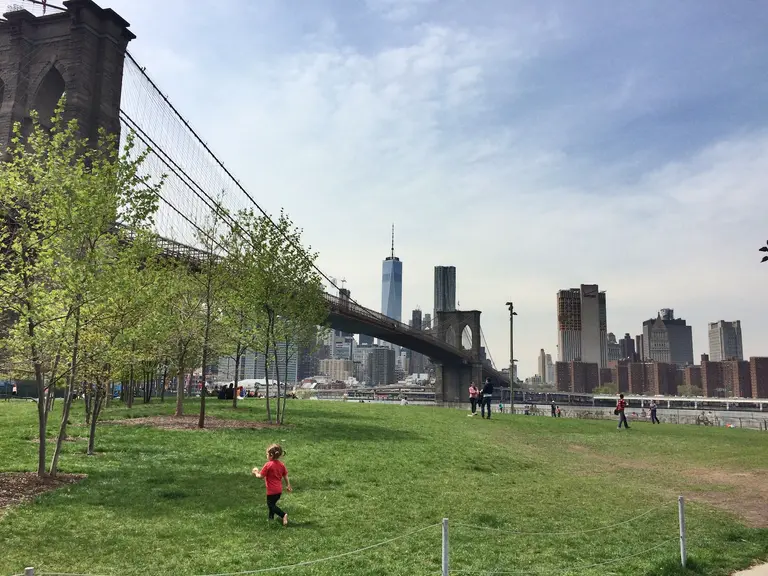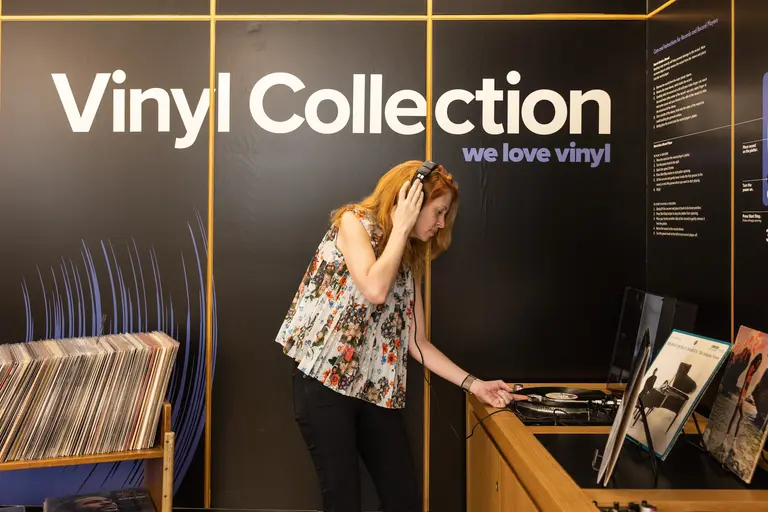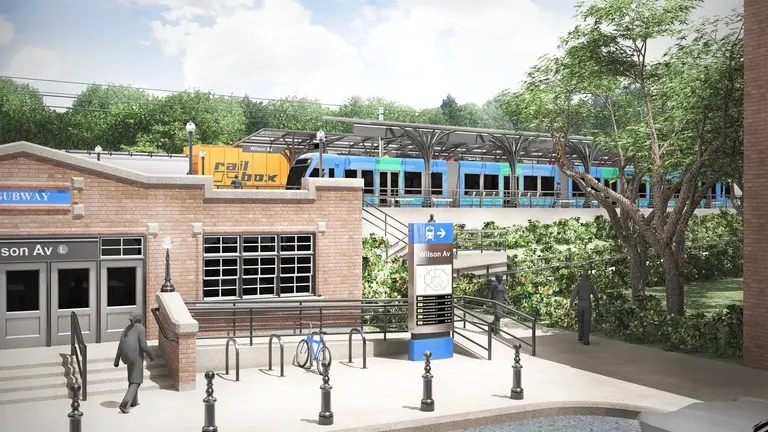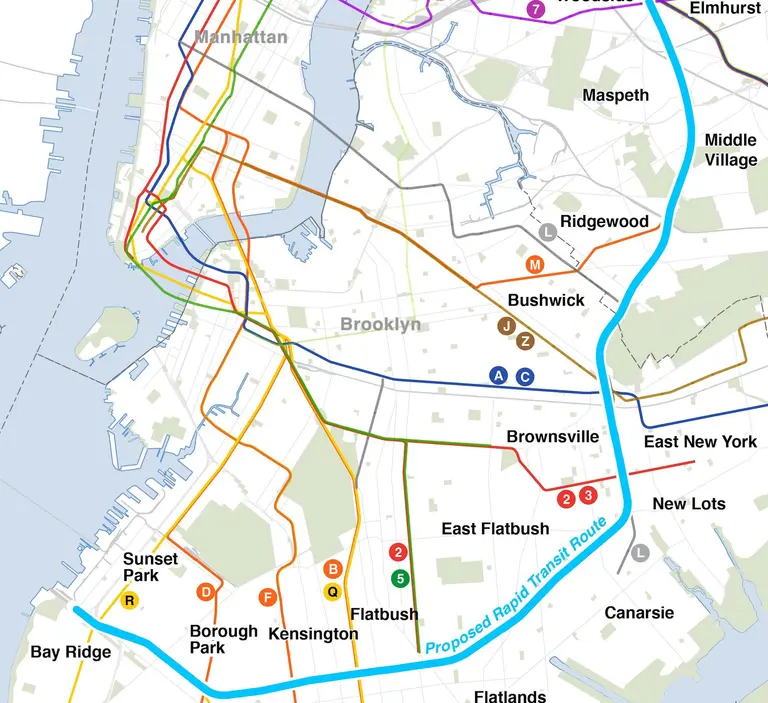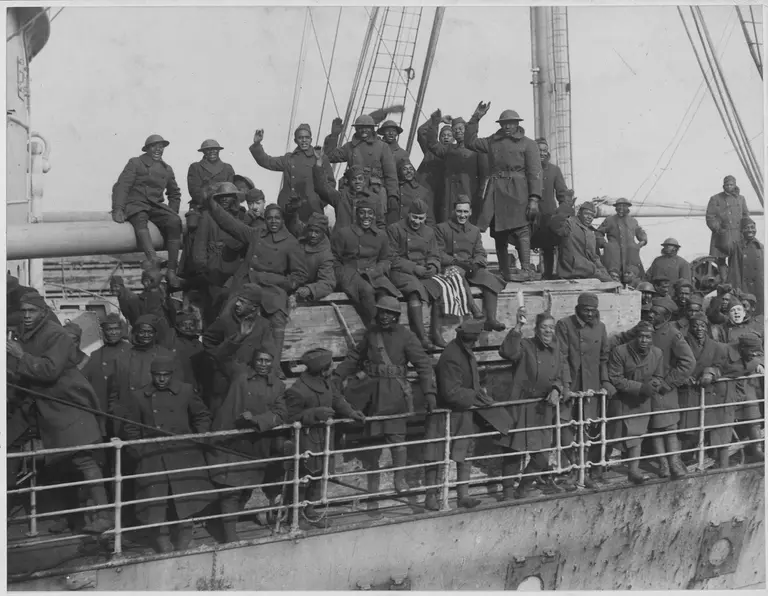City Kids: Why Parents Pick City Living Over the Suburbs
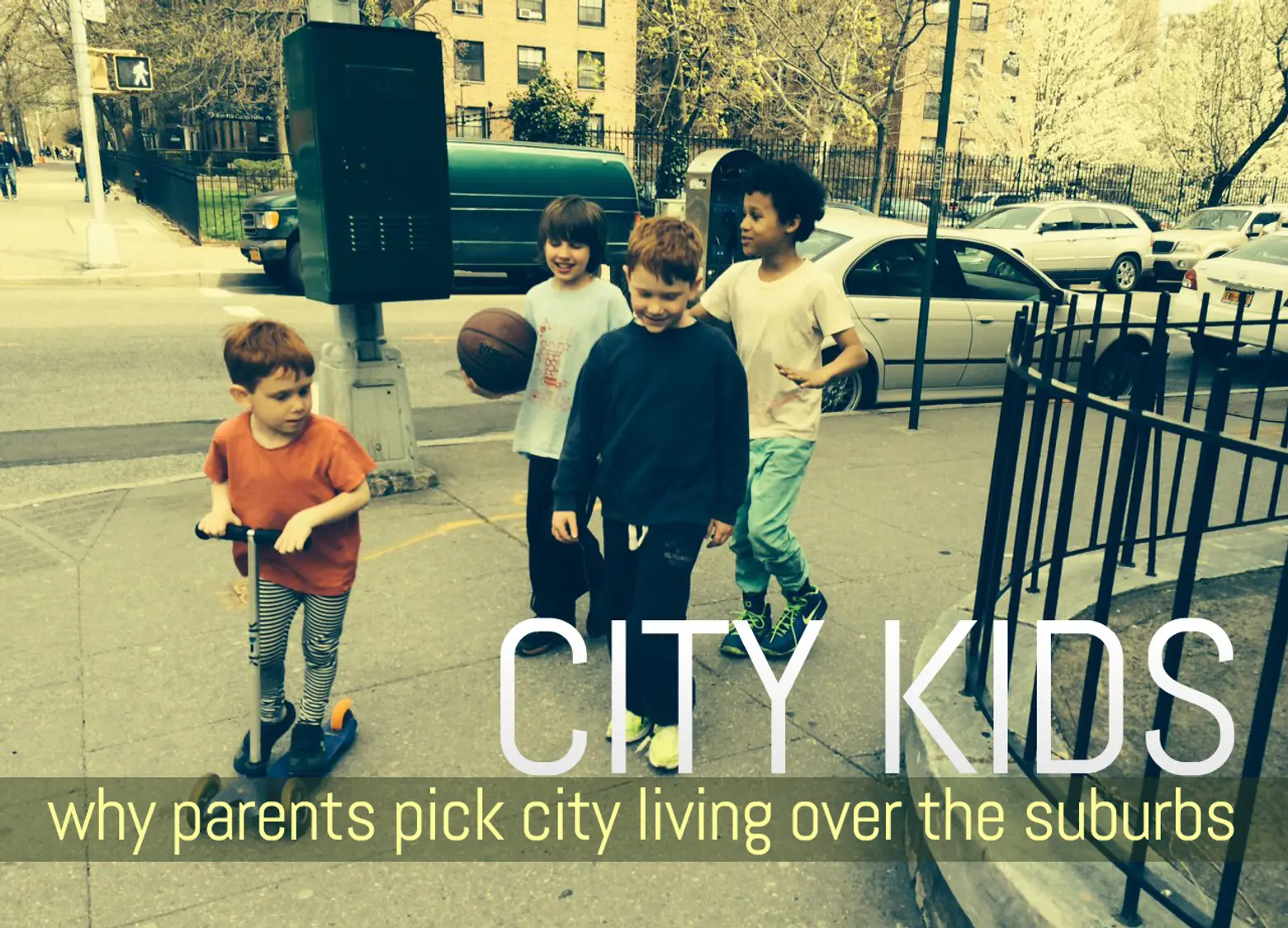
The ‘American Dream’ may have dominated the last few decades, causing a mass exodus to the suburbs, but today’s families are reversing the trend and turning their attention back to the city. The reasons are many: An appreciation for cultural offerings, the camaraderie and creative cross-pollination of networks of colleagues, friends and family, the convenience of being able to walk or bike to school, work or child care without a long commute—just to name a few. New York City has always been a haven for the forward-thinking, albeit a challenging one. And its newly-”discovered” outer boroughs as well as an unprecedentedly low crime rate have made the city a prime choice for family living.
But what is it about those city kids—the ones with parents who planned from the start to raise their kids in a non-stop urban environment? We interrupted the busy schedules of five families currently raising school-age (or soon-to-be) children in New York City’s many diverse and multifaceted neighborhoods to get some insight about why they wouldn’t have it any other way.
***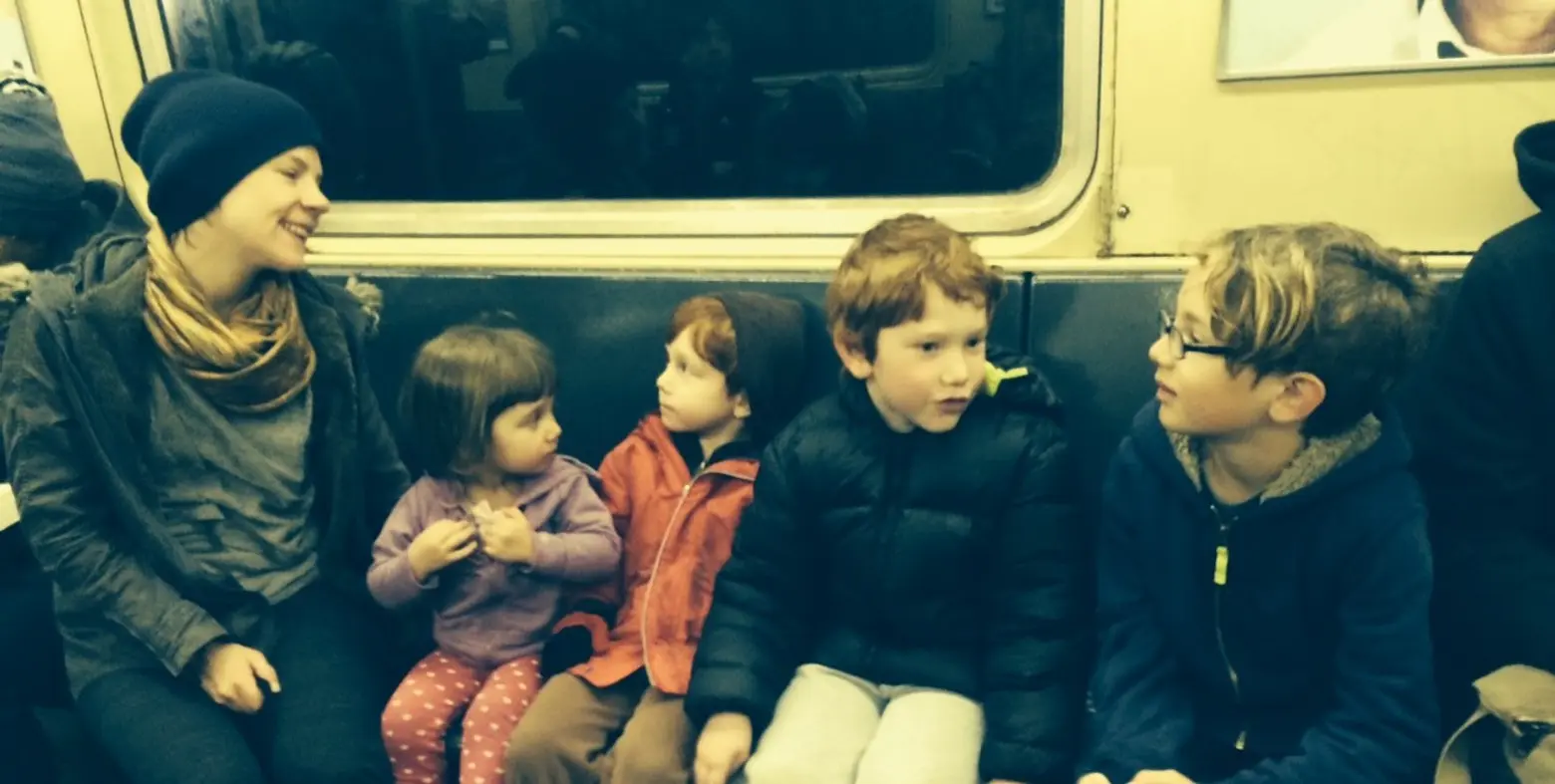 Image © Amy Taylor
Image © Amy Taylor
Had you always planned to raise your child(ren) in the city? What do you like about the idea?
The Parents: Amy, civil rights attorney at an office that provides legal services to low income New Yorkers, and Peter, law professor
Neighborhood: Clinton Hill, Brooklyn, 13 years
Home: Co-op in a five-story apartment building
Kids: Oscar, 9, Marlow 6, Ruby, 3
We both grew up here so family is close. It’s so much easier to raise kids in this crazy city with family to help and we have three sets of grandparents nearby. We are both New Yorkers to the core so never even discussed the possibility of leaving. I grew up in a small apartment sharing a room with my sister so it never fazed me to live in a small space and not have a backyard—the city is our backyard. Although, that being said, I would love a backyard!
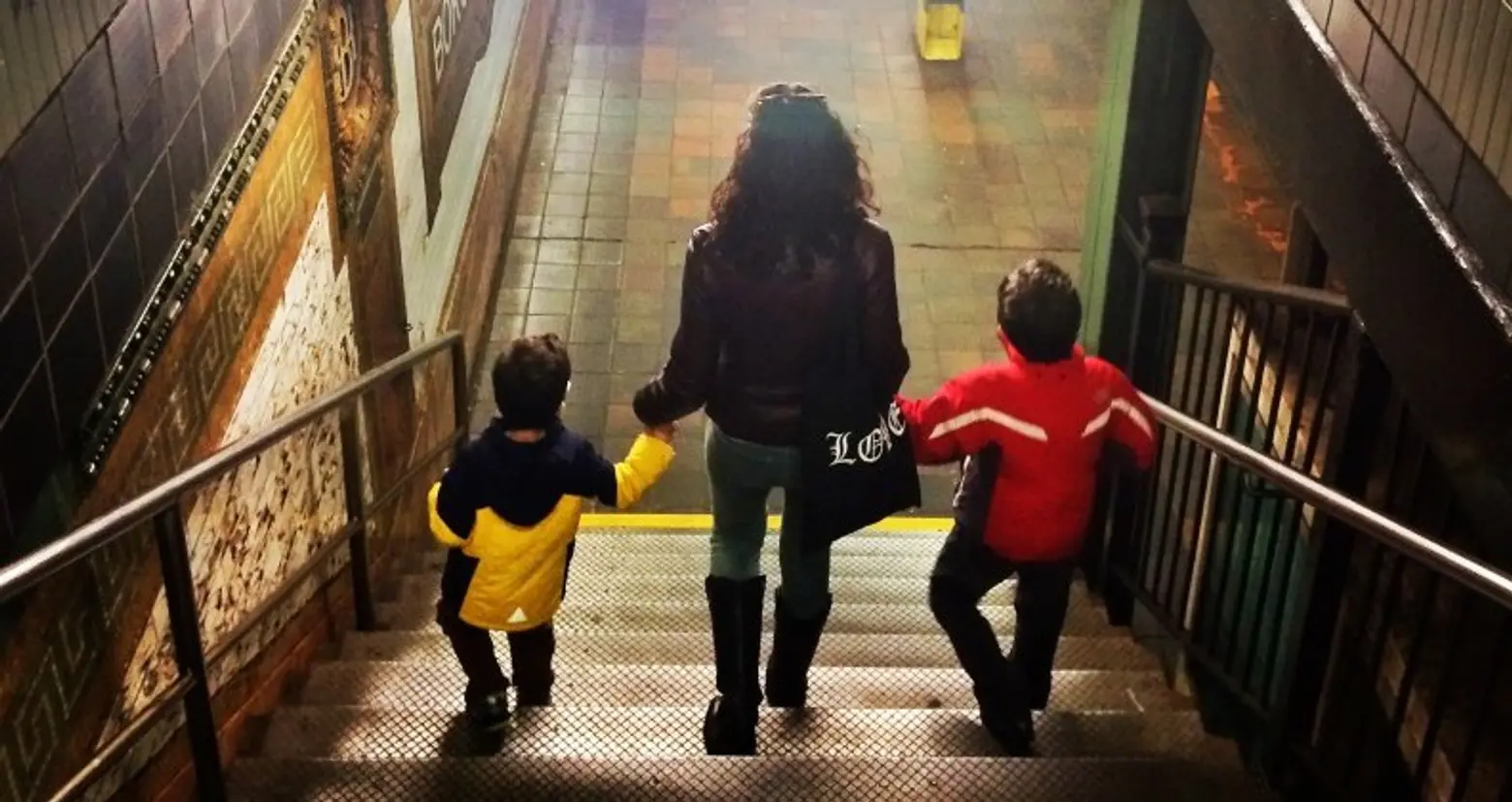 Image © Matthew Richmond
Image © Matthew Richmond
The Parents: Lori, creative director and illustrator, and Matthew, creative director
Neighborhood: Downtown Brooklyn since 2005
Home: 2BR/2BA condo
Kids: Two boys, ages 7 and 4
We’d always planned to stick it out as long as possible. Getting into a decent school is a huge milestone, so once we did that, we knew we were good for at least another 5 or 6 years before the next stage of school. I love the idea of raising kids here because it is such an exciting place to live. There’s constant stimulation, so much to do, and so much to learn.
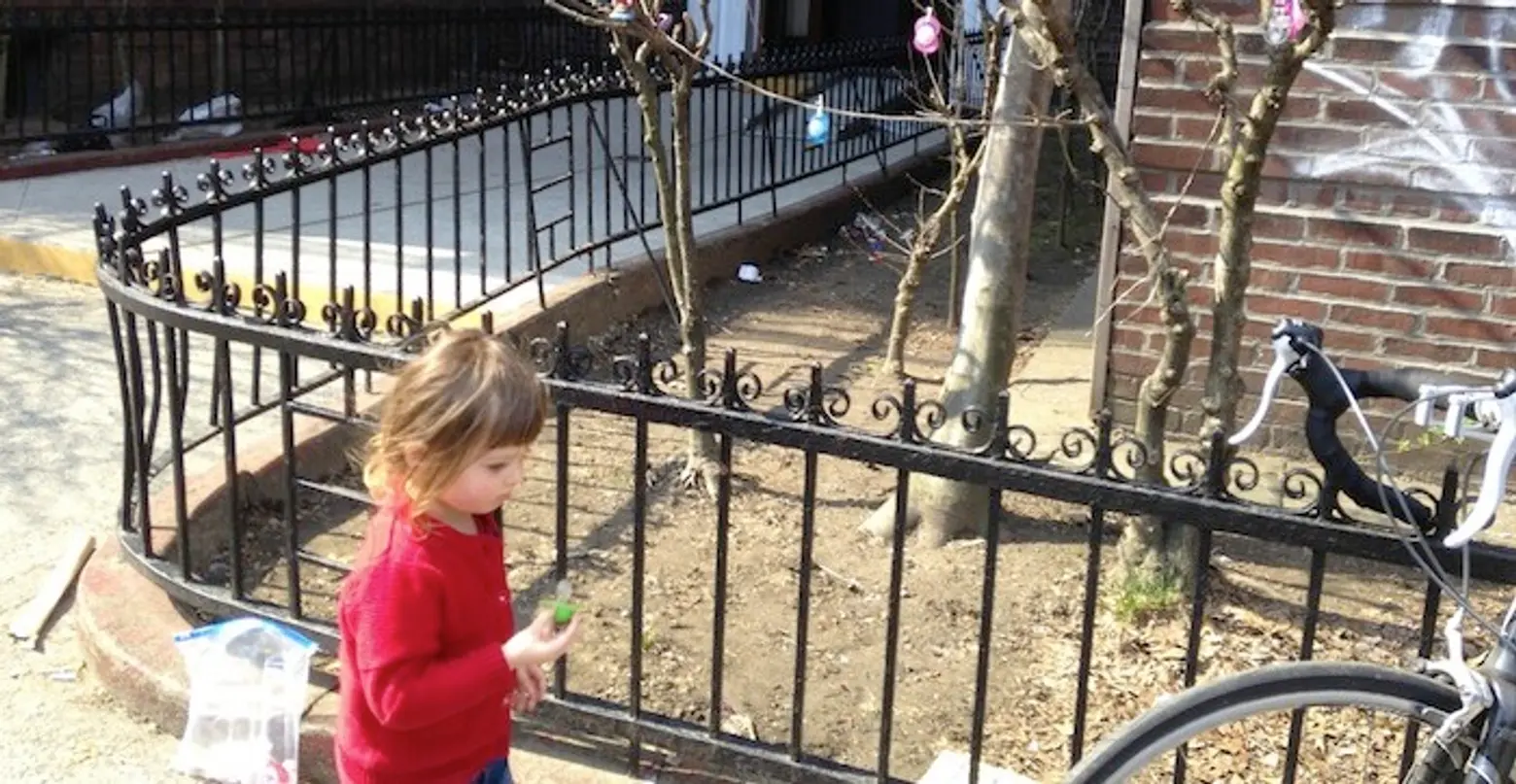 Rites of passage: Saying goodbye to pacifiers at the pacifier tree outside an apartment block in Borough Park, Brooklyn. © Malcolm Russell
Rites of passage: Saying goodbye to pacifiers at the pacifier tree outside an apartment block in Borough Park, Brooklyn. © Malcolm Russell
The Parents: Malcolm and Liz, both work in advertising—he’s a media planner, she’s a brand strategist
Neighborhood: Kensington, Brooklyn, 1 year
Home: Detached house
Kids: One girl, age 2
We were always pretty sure that if we had kids we would bring them up in a city. There are few jobs in what I do outside of New York so moving to a smaller city wasn’t really an option. That aside, I think it provides children with a richer set of experiences–experiencing greater diversity, easy access to jobs, better contacts, museums and galleries, classes, activities and so on. It’s all on your doorstep. The commute is shorter so you get to spend more time with your kids. I see my daughter for a couple of hours in the morning before going to work, take her to school, and am with her for an hour before she goes to bed. Many people I know who live in the suburbs only see their kids on weekends.
Parents have to be happy too. We’re city people–I’ve lived in cities for the past 25 years. I agree with Ed Koch:
Have you ever lived in the suburbs? It’s sterile. It’s nothing. It’s wasting your life, and people do not wish to waste their lives once they’ve seen New York!
I don’t necessarily think growing up in a city makes kids more intelligent but I think it gives them more knowledge, experience and opportunity to apply their particular talents. I grew up close enough to a major city in the UK to get a lot of inspiration from it in terms of life’s possibilities but too far away to really take advantage of them fully. When I went to college, many of the true city kids I met were more confident, had broader experiences—sometimes for better or worse—and were more confident in being entrepreneurial and had a greater sense of what was possible for them to achieve.
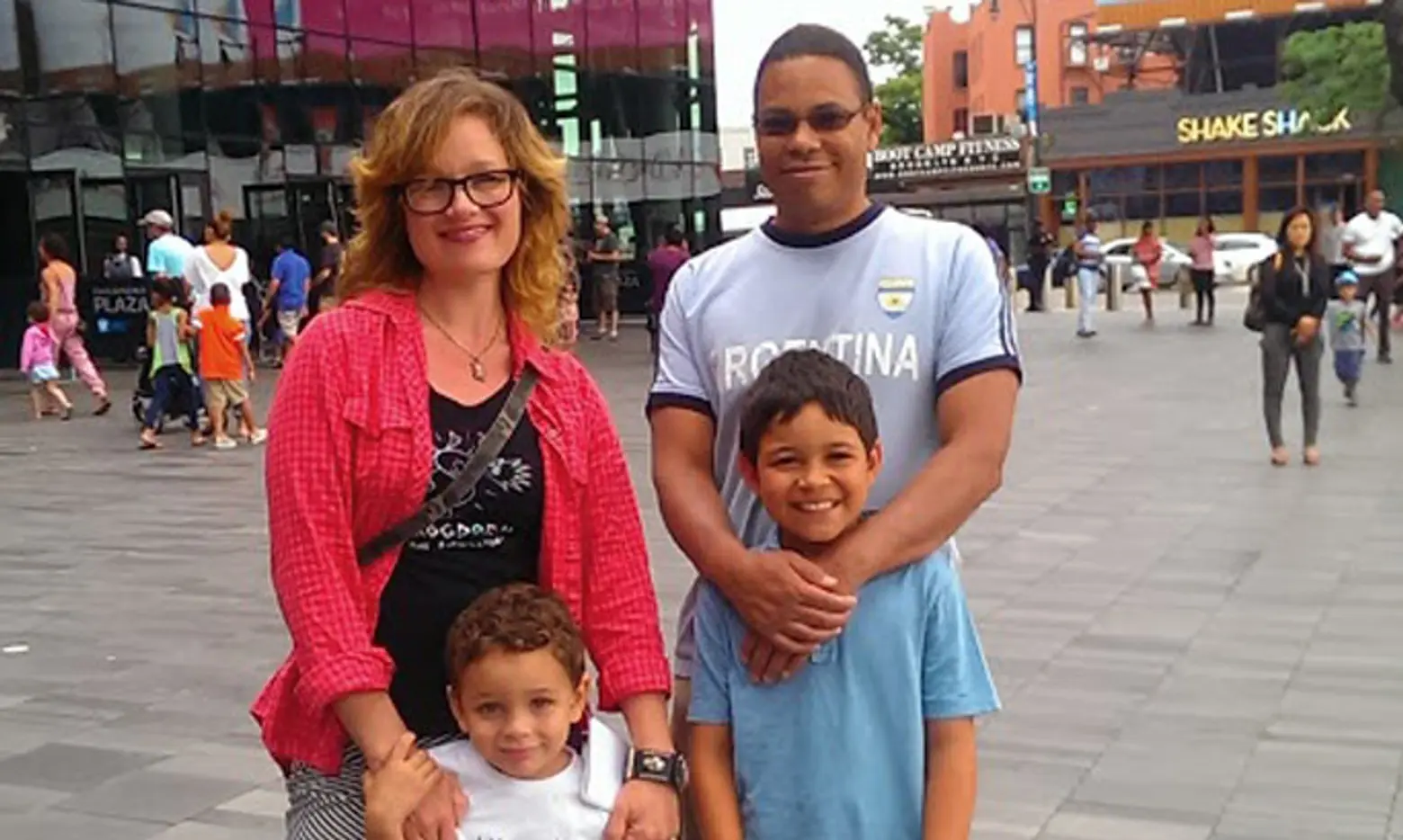 Image © Michele Barber-Perry
Image © Michele Barber-Perry
The Parents: Michele, graphic designer/real estate agent, and Lucien, real estate agent
Neighborhood: Bed-Stuy, one year
Home: Rental duplex in a brownstone
Kids: Langston, 9 and Kenji, 4
I had the experience of growing up in both rural and urban settings so I have an educated basis for comparison. I lived in a log cabin in a (pre-internet) rural area that felt dull and isolated. My dad was an actor living in SoHo and after every visit, I would pine for the city and all it had to offer and everything I was missing out on living in the country. I would watch movies like Desperately Seeking Susan and Hannah and her Sisters to stay connected to that edgy, downtown ’80s scene that has, of course, vanished now.
The kids I knew from here just seemed more well-rounded and worldly having the whole world at their fingertips. I love the fact that riding the subway, my kids get to hear a dozen different languages and every day is an adventure. They are surrounded by the best and the brightest and the most interesting. Every time I think about moving, I think how hard it would be to leave it all behind.
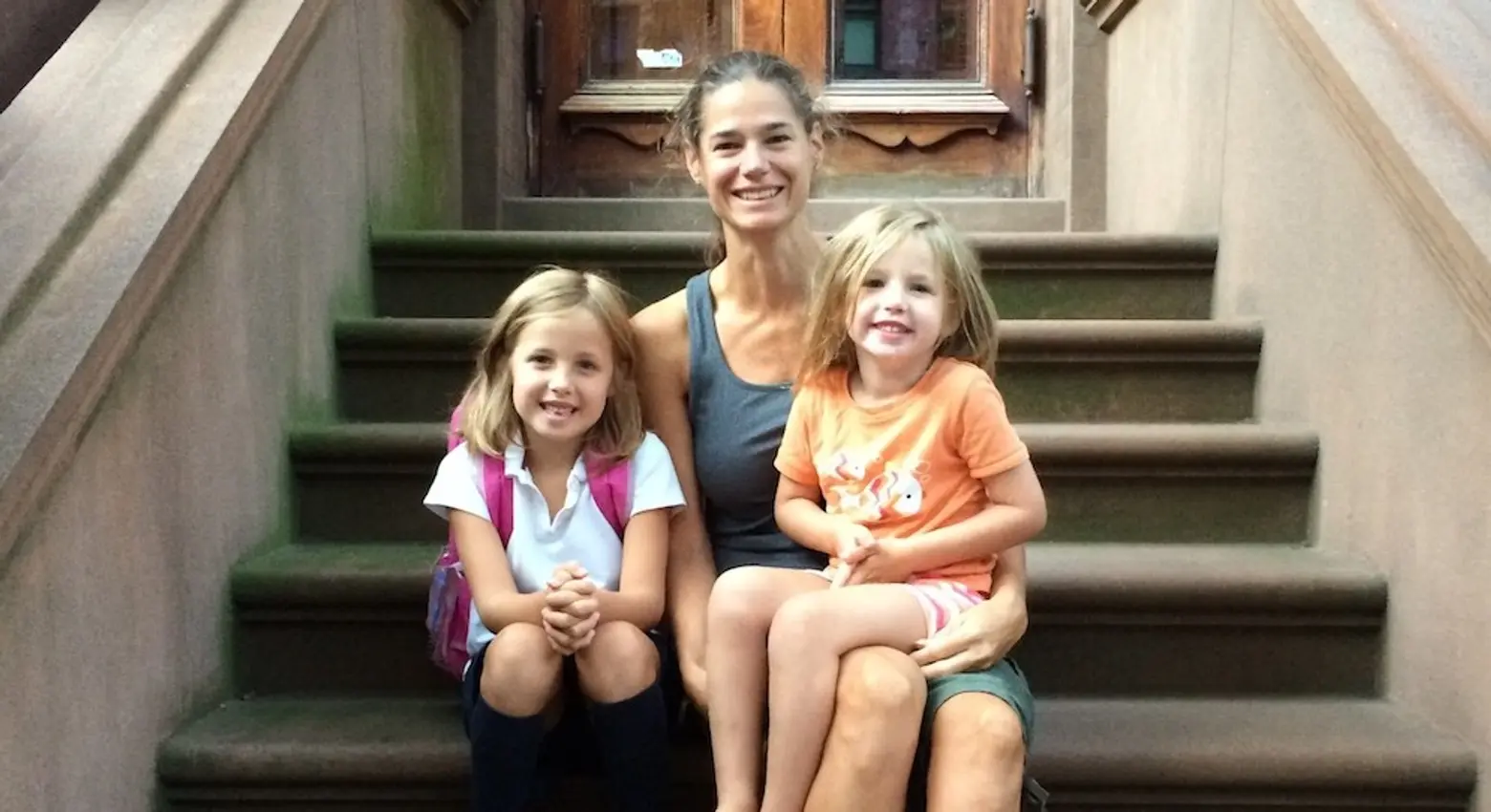 Image © Russell Nance
Image © Russell Nance
The Parents: Chrissy, fitness instructor, and Russell, lawyer
Neighborhood: The Mount Morris Park section of Harlem since 2006
Home: A 1890s brownstone
Kids: LuLu, 6, and Gigi, 4
We both grew up in Virginia, so the idea of raising kids in the city was completely foreign to us. We moved here in 1997 for a postgraduate program at NYU Law School. At the time, our plan was to spend the requisite nine months here and then head back to Virginia as quickly as possible. But we fell in love with the city after just a few months and decided to give it a go. We thought that we would probably spend a few years here and then move to D.C. or Virginia. After a living here for a few years, we couldn’t see ourselves anywhere else.
We also knew that we wanted kids, so the two desires collided. At first, the idea of raising kids in the city was daunting. We were concerned that it would be difficult to keep our kids grounded. At the same time, we were excited about the access to all sorts of things that growing up here would allow. Some of these are tangible benefits; others are more amorphous.
What unique advantages, if any, do you think city kids have? Will they become more sensitive to others, more able to handle the challenges of a complicated future? Better able to compete for educational opportunities and careers?
Amy: Beyond being (biased) New Yorkers, we both really value the diversity that our children are being raised in. We ride the subway with people from all over the world and their friends come from all kinds of families. And that is all normal to them. We see poor people and rich people when we walk down the street. There are so many places in this country where people drive around and don’t interact with people in the community beyond their schools and immediate neighborhoods. I think growing up in a diverse community does make kids less spoiled. We really value the elbow-bumping and exposing our children to the world. We also both are public interest lawyers and do work that is very important to us, and that is part of NYC too–the communities we work with and exposing our children to careers that make a difference.
There are so many places in this country where people drive around and don’t interact with people in the community beyond their schools and immediate neighborhoods.
Lori: I think city kids are greatly advantaged in terms of access to culture. My older son, when he was around five or six, used to read the Magic Tree House book series and there was one book about ancient Egypt. I took him to The Metropolitan Museum of Art to see a real sarcophagus and hieroglyphs that were mentioned in the book. That was one of those “Wow, we are so lucky to live here” moments!
We also live across the street from the New York Transit Museum. For a long time, it was essentially our backyard. We would take the kids there and they’d learn about all the trains and get to run around in the old train cars. Every little boy’s dream!
Michele: My kids have advantages I never would have anticipated being able to give them. Langston goes to a public Gifted and Talented school that is prestigious and competitive. It’s the absolute best education he could possibly receive and we feel incredibly fortunate that he is in a racially and economically diverse environment full of smart kids all day. Kenji goes to a Chinese pre-school that is taught in Mandarin—which is what all the math-based schools are learning these days—where he has friends from many backgrounds and cultures.
But it’s more than that. Living in an urban environment forces you out of your comfort zone on a daily basis, which is where I feel the real personal growth occurs. My kids have learned about the real world from a very young age—they are very connected to others. I bought them a special coin purse for them to keep their own change to give to street musicians so that I wasn’t constantly getting my wallet every five minutes. My kids give up their seat on the train, hold the doors for people, help moms with their strollers up the subway stairs. I make sure they’re always on the lookout for ways to be gentlemen.
Russell: The city is a hotbed of art, entertainment, landmarks, culture, sports, history, food, and many, many other things. Our children are constantly immersed in all of these things and are receiving a cultural education every time they walk out the door. Experiences that would have been extraordinary to us as children are commonplace to our kids, but no less influential. Last year, when LuLu was five, she said to me out of the blue in a very unassuming way, “Dad, my favorite painting is ‘Starry Night.’ I saw it at MoMA.” This blew us away. I didn’t have a favorite painting when I was five. I certainly didn’t know what “Starry Night ” was, and I most certainly had never seen it.
Of course, these things are all available to anyone who visits the city, but living here allows us to access the events easily. But the experience is more than just museums, sporting events, and shows. It’s the people that make the city and the experience. Our children live among and interact with people of all different shapes and sizes from many different cultures—what falls under the rubric of “diversity” in current parlance. They can see that not all people hold the same beliefs and values, and they’re not afraid to converse with people who appear different from them.
For example, Gigi and Chrissy were on the subway recently with a woman in a burka. Gigi was fascinated by this and asked the woman a number of questions about her attire. The woman explained that, pursuant to her religious beliefs, only her husband, father, and brothers were allowed to see her without the burka. That sort of cross-cultural experience is something that we never would have experienced as children. I don’t know whether that actually makes them more empathetic, but it gives them the tools to relate better to others.
I do think that the city requires a certain overall competency and generally instills a drive—what some might call pushiness. It’s part of life in the city from a very young age. There’s a natural competition. With a large and expanding population, people are jockeying for limited resources, which plays out in crucial ways, like finding that apartment, and in the mundane, like getting a cab in the rain. At our kids’ age, it’s much more subtle, but I do think that they are inevitably picking up drive and also resiliency and flexibility. There are also so many unforeseen circumstances that require a quick change of course. So the 2/3 train is delayed, how do we get to school? Walk to the B/C? Take a bus? Hail a cab? A rapid response is required. These tools will be valuable to our kids as they face a society whose rate of change is accelerating exponentially.
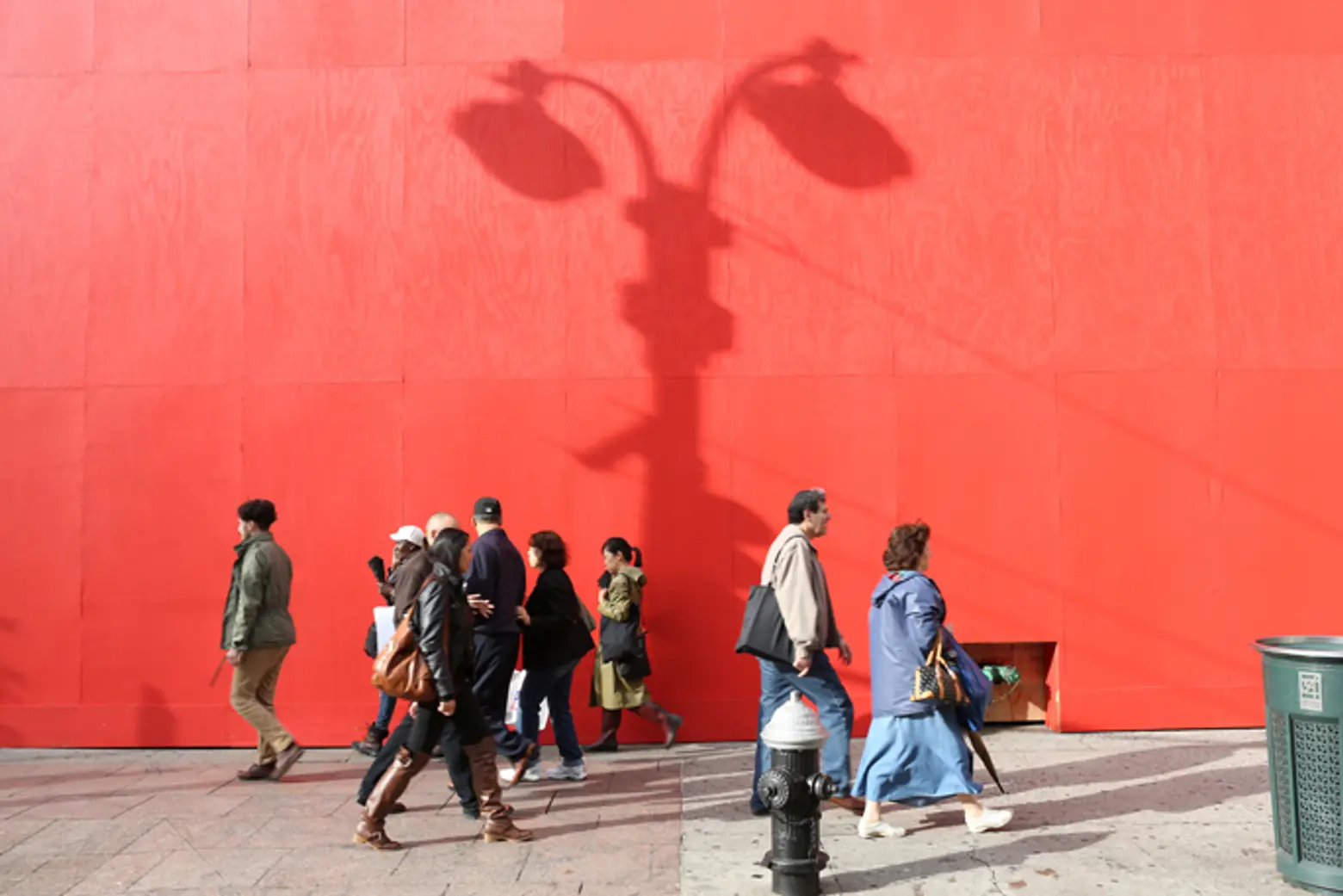
What about things like health and wellness: access to good nutrition, exercise, health care providers, public health, personal safety. Do you consider safety from crime a factor? Has it improved?
Amy: I wish my 9-year-old could walk down the block by himself. That is a real limit. There is much less freedom for kids here. When we leave the city and they can wander and be free, that is very magical for them.
I think city folk—adults, that is—tend to be healthier when compared to the rest of the country. We get out a lot; when you have kids, you have to be outside as much as possible. Crime is big though, I wish I didn’t have to worry about it.
Lori: I feel very safe here, and haven’t had many safety concerns. All kids, no matter where they live, need to understand things like “stranger danger” and personal safety. We’ve also had our share of broken bones by now and have had access to excellent emergency medical care. Our kids are used to walking everywhere, so we all get lots of exercise.
Malcolm: New York has undoubtedly become safer. Some people bemoan this as a loss of its grit and edge. I have some sympathy with that, but it has made it easier to raise a kid in the city. Of course, much of this is income-dependent and the same opportunities aren’t necessarily available to all.
Michele: Of course, crime worries me–but not as much as being exposed to unvaccinated children. And, honestly, I am way more afraid of the kind of crime that happens in the country. Part of my kids’ upbringing is safety training that includes the obvious things like crossing the street, not talking to strangers, wearing a bike helmet. But, I also make a point to teach them street smarts. They are becoming really good judges of character.
Russell: Nutrition, exercise, and health care providers are not a concern. We live in a neighborhood that, I understand, was once a food desert. Now, there are plenty of options for healthy fare at both high and low price points. In my mind, this is largely the result of gentrification, but I also think that there has been a campaign to bring healthy choices to underserved areas. Our kids also get plenty of exercise. Walking is our main mode of transportation. The city also offers some of the best health care providers.
However, cleanliness, public health, personal safety and, particularly, physical danger are all issues of which we are acutely aware. The city is a mechanical marvel, but the gears of the city can be dangerous.
The city is a mechanical marvel, but the gears of the city can be dangerous.
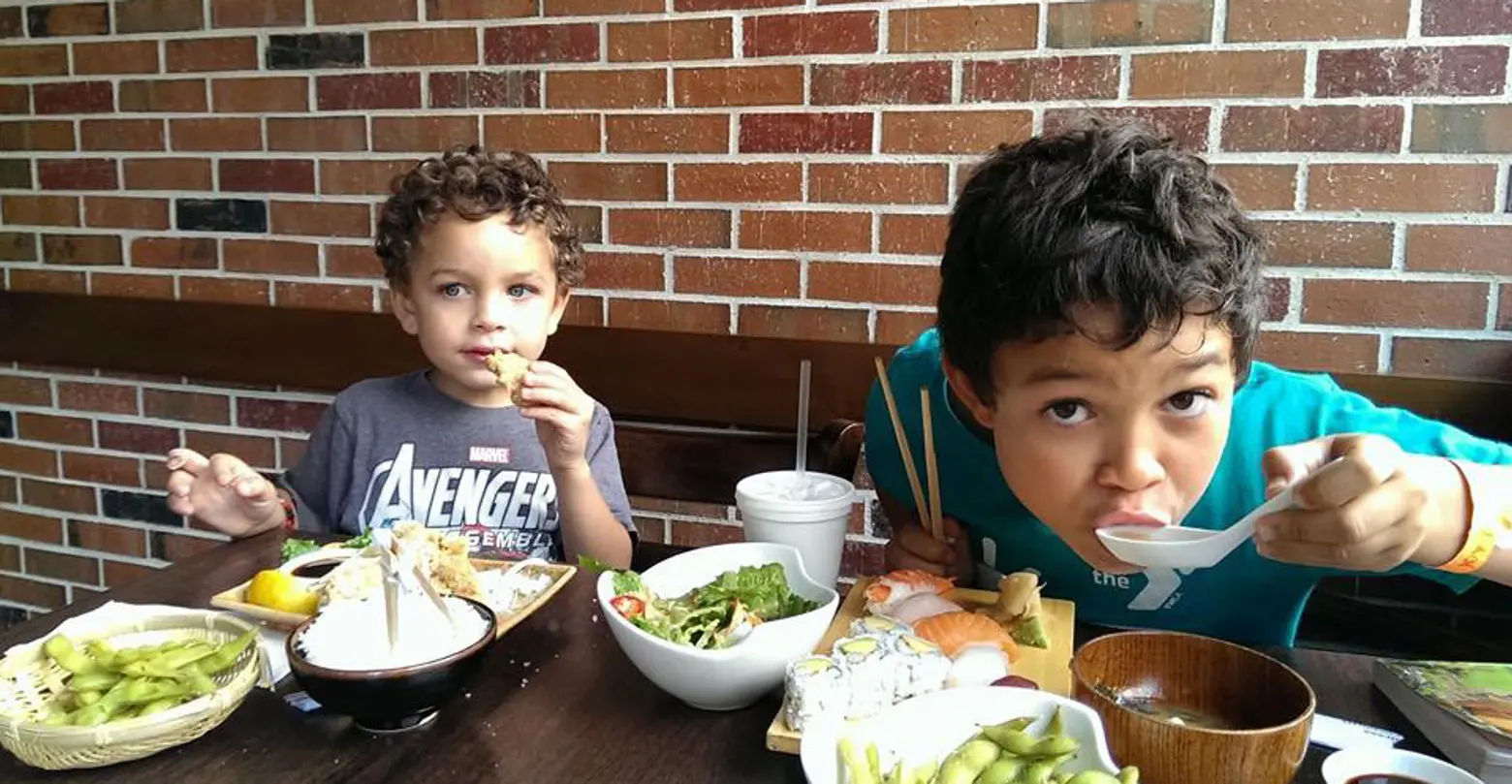 Image © Michele Barber-Perry
Image © Michele Barber-Perry
On a day-to-day basis, do you enjoy living with kids in the city?
Amy: Love it. Love that we can wake up on a Saturday and stroll around the neighborhood, see our friends, decide to hop a ferry to Governor’s Island and go to some wacky art fair or a children’s fair imported from France, or go eat Dim Sum in Chinatown or walk across the Brooklyn Bridge. That is why we live with the struggle of it because it’s not an easy place to live.
Lori: I love living here. It is hard–we need more space in our apartment. The cost of living is so high that we really can’t “size up” at this point unless we moved much further out. We’re going to a reach a tipping point in the next few years where we’ll have to make some tough decisions. The kids are only getting bigger.
But we both work close to home with very short commutes, which means more family time. That’s the tradeoff of having little space. If we lived further out, or in the ‘burbs, that would cut into our family time during the week. What is more important–a bigger living room, or time together?
What is more important–a bigger living room, or time together?
I love that we have so many fun adventures and unique moments. We went on a playdate recently to the Brooklyn Museum, and my son and his friend were sitting and drawing in a children’s gallery. A gentleman came and sat with us and starting sketching beautiful line drawings. He spoke no English, but through charades and a postcard he handed us, we learned that he is an acclaimed painter in his country of Azerbaijan. He signed and gave us the drawings.
Malcolm: The other weekend I took my daughter to a playground where she made friends with some Russian kids, to a Native American rug shop in Williamsburg, to the Sculpture Park at Pratt, to an Uzbek restaurant, to the West Indian Day Parade and then for pizza. It’s the richness of experience on your doorstep that does it for me.
It’s the richness of experience on your doorstep that does it for me.
Michele: I love Brooklyn. I love the vibe and the architecture and being center of the universe. Because there are so many mixed-race families here, I know my own mixed-race family is not going to be regarded as unusual, which is very comforting. I love that you can take a walk around the block and all of a sudden chance upon a street festival or some sort of performance art. But I hate the winter. Last winter kicked our ass and I made plans to move to California. But then spring comes around and I can’t ever imagine leaving here.
Russell: Living in the city with kids is not without its challenges. The city seems to have evolved around the individual adult. Navigating the city with a stroller can be difficult and exhausting. Most things are adult-sized and sometimes the tolerance of strangers for the unpredictability (or flat-out irrationality) of small children can be thin. It’s certainly not for the timid. Yet, from day-to-day, we wouldn’t have it any other way.
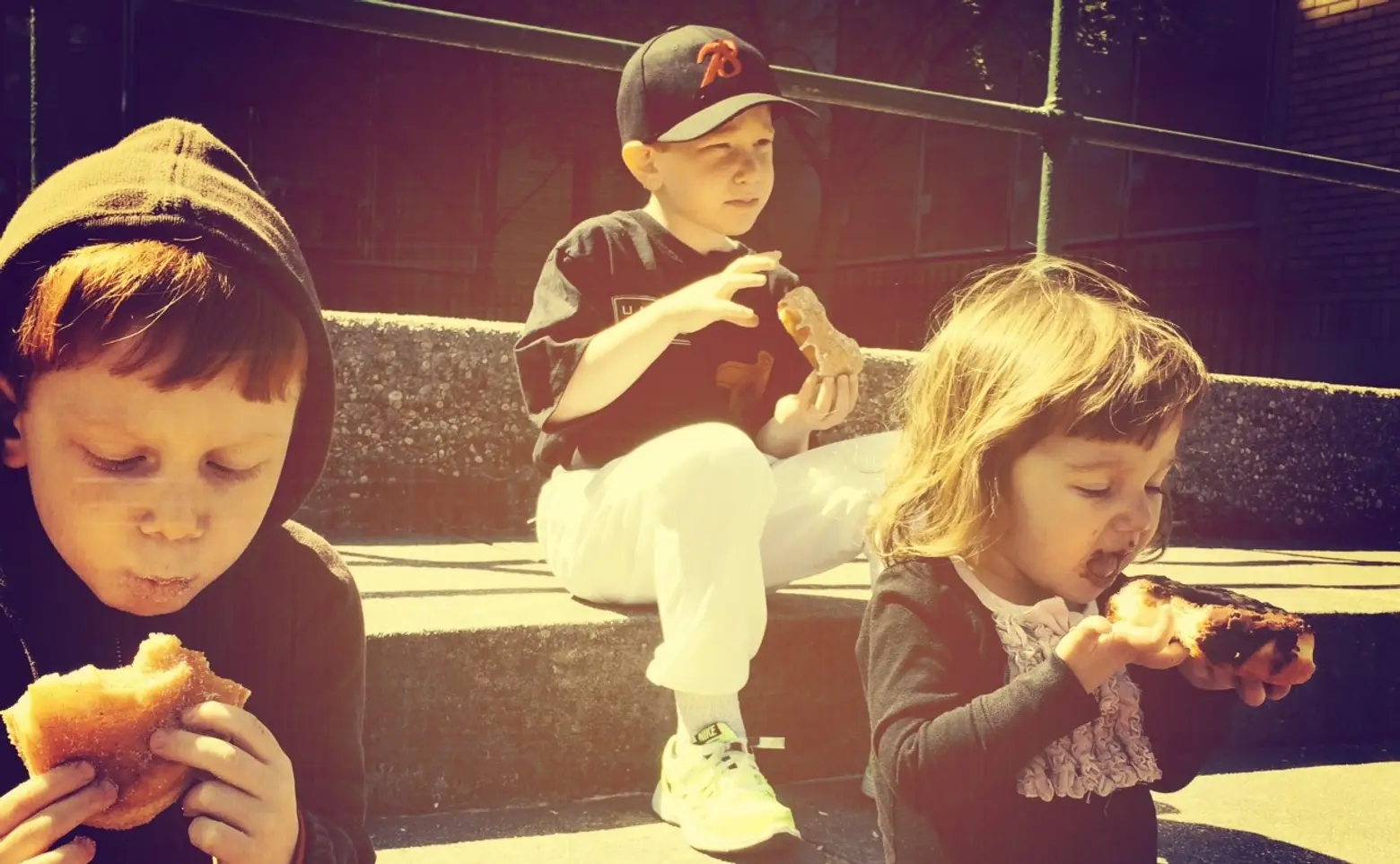 Image © Amy Taylor
Image © Amy Taylor
How does your neighborhood contribute to the experience? What do you love about your neighborhood for kids? Has it changed in recent years?
Amy: Clinton Hill is a real neighborhood where people know each other. It’s beautiful. It has a lovely diversity of people and families, young kids from Pratt and an artist scene and the best freaking yard sales in NYC! It has Pratt Sculpture Garden and the Brooklyn Flea and Fort Greene Park and great playgrounds. It has not yet been taken over by corporate Manhattanites. Hold on to your seats though, that’s coming, sadly…
Lori: Our neighborhood is very family-friendly. There are many parks nearby, schools, restaurants, and open areas for kids to play. It’s also close to Manhattan and a lot of subway lines.
Malcolm: I love the amount of space we get in Kensington. We have a detached house with a massive yard for the same price as a small apartment elsewhere and it’s just a few minutes from Ditmas Park with its restaurants and bars, and a short-ish walk to Prospect Park. It’s also a family area with a great elementary school. Our daughter goes to pre-K in one of the massive Victorians and there’s a DIY attitude–e.g. a neighbor does free Chinese classes in her home.
Michele: Bed-Stuy is cool because we’re very close to many of our friends, the subway, the park. Though our favorite, Brower Park, is in our old neighborhood of Crown Heights. We’ve got some good restaurants opening up close by. Fresh Direct delivers here!
Russell: When we moved to Harlem from Union Square, we joked that we had moved half way to the suburbs. The avenues are wider, the sidewalks less crowded, and the buildings lower. It’s the feel of the city, without the crushing population in every direction. While much of the city has become homogenized, the neighborhood in which we live has retained character. Perhaps this is hyperbole, but I think that it has the feel of living in a village within the city. We have lived in Harlem since before kids, and it’s the only home that our kids have ever known.
There are numerous parks around, including the northern stretch of Central Park, which still appears to be a largely undiscovered gem, and there are at least six playgrounds within walking distance. Transportation is easy. With the advent of green cabs, there are now cabs all over the neighborhood. Space is always an issue in NYC, but our neighborhood offers more space for the buck, so it has been attracting families for some time.
We’ve watched the neighborhood change fairly rapidly over the last eight years.
When we first moved here, services and amenities were severely lacking, at least from our perspective. Now, it seems that a new restaurant opens every month, and we have friends from the Upper West Side asking to go to dinner where we live. Of course, there have been the usual issues associated with gentrification, but the neighborhood is vibrant and thriving. Access to quality schools remains an issue in the neighborhood.
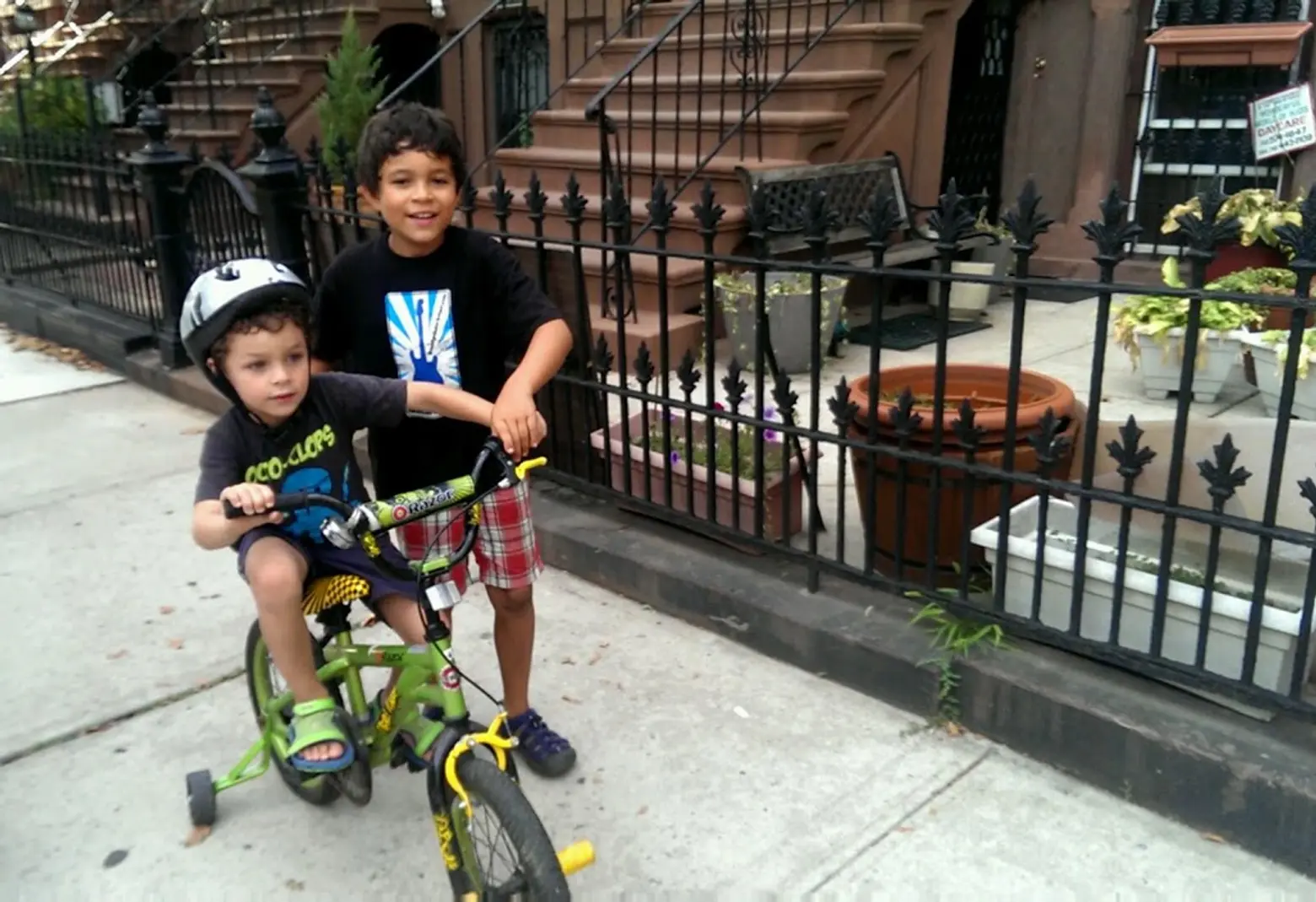 Image © Michele Barber-Perry
Image © Michele Barber-Perry
What would you say the biggest challenges are of having a family in the city?
Amy: We’ve been lucky to have our kids in excellent schools, but I think the school search is really hard here. Although there are a lot of great schools, they’re hard to find and get into, and parents stress over that a lot.
Lori: I’d really love a brownstone, or a gigantic 3-bedroom apartment with a roof deck. But I don’t have several million bucks for either of those. Space is really the biggest issue. All our furniture does double duty and has multiple uses. It definitely gets frustrating at times. Or all the time.
Malcolm: For us it’s being so far from family in the UK but now we have a spare room it’s easier for them to come and stay.
Michele: Getting the kids to school in a different borough, getting them to practices and commuting to work is a daily challenge. Everything is really spread out and I feel like it always takes us forever to do get anywhere. We got a car in order to make it a bit easier, thereby removing one of my bragging points—that you don’t need a car to live here and our carbon footprint is smaller—and that’s also a challenge in its own way.
One thing I regret is that my kids are not around nature on a regular basis. When we go to the country, they love playing outside with animals and don’t even ask to be on a screen. Langston says he wishes he lived in the country because he thinks the city is dirty and noisy and cramped. I’m sure that if we lived in the country, though, they would be missing all the cool stuff they take for granted here.
I think a big issue for me is that raising kids in the city means they are always around us. I fear that being around adults so much not only impedes children’s creativity but it also creates a level of familiarity with grow-ups in which we are almost seen as equals. It is a constant battle to maintain the authoritative hierarchy.
Russell: It should come as no surprise that the two biggest challenges are living space and quality education.
What do your kids love most about living in the city?
Lori: They love riding the subway. That’s how we get to school! But I also think that they’d love their own backyard. That’s the tradeoff.
Michele: They love all the cool stuff they get to do. But, in many ways, they are exactly like any other (non-urban) kid: they play legos, video games, watch tv and hang with their friends.
Russell: Although they don’t know it, I think our kids appreciate that there’s never a dull moment. There are quiet moments, certainly. There’s downtime. But the cure to boredom is just outside the door.
Lead image courtesy of Amy Taylor
